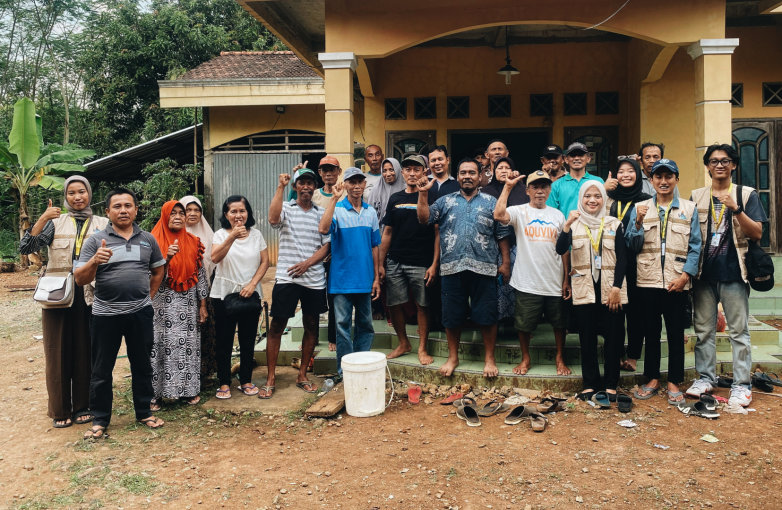
Intan Nur Khasanah, a student from the Agricultural Extension and Communication Program, Department of Agricultural Socio-Economics, Faculty of Agriculture, Universitas Gadjah Mada, has completed a 50-day Community Service Program (KKN) in Karanggondang Village, Mlonggo Sub-District, Jepara Regency, Central Java. Together with her team, Intan implemented various initiatives under the theme “Optimizing Coastal Area Potential through Technology Integration, Economic Empowerment, and Environmental Sustainability for Community Welfare.” These activities not only delivered tangible benefits to the local community but also aligned with several Sustainable Development Goals (SDGs).
A standout program was the training and practice of producing Jadam Sulfur and amino acid fertilizers to enhance organic farming, which became the highlight of this KKN initiative. Additionally, the team conducted socialization on backyard vegetable cultivation to support family nutrition, introduced maggot farming as a solution for household kitchen waste management, organized an English Fun Day for elementary school children, and developed a pocketbook introducing the Jarimatika concept to make math learning more enjoyable. The Jadam Sulfur training with the “Tani Mulyo 10” Farmers’ Group was particularly memorable for Intan, as participants enthusiastically applied the knowledge directly to their fields, inspiring the entire team.
Despite challenges such as low community participation in some activities, Intan and her team overcame this by engaging in local routines like religious gatherings and communal work, fostering trust and connection with the community. Close collaboration with village officials and youth organizations like IPNU and IPPNU was key to the program’s success, particularly in promoting local tourism in Karanggondang. The programs were tailored to local needs, enabling the community to gain new insights, skills, and networks to support their long-term well-being.
This KKN initiative aligns with several SDGs: SDG 2 (Zero Hunger) through vegetable cultivation and organic farming improvements for food security; SDG 12 (Responsible Consumption and Production) via waste management with maggot farming; and SDG 4 (Quality Education) through educational programs like English Fun Day and Jarimatika for children. Beyond its tangible impacts, the program taught Intan valuable lessons about adaptation, communication, and the essence of community integration.
Intan expressed heartfelt gratitude to the residents of Karanggondang, especially those in RW 8 and RW 9, for their warm welcome and active participation. She advised future KKN students to design relevant programs, engage deeply with the community, and maintain team unity. “Do everything with heart, as it will make the 50 days feel light and joyful,” she said. This KKN experience underscores that community service is not just about executing programs but also about building relationships and creating lasting contributions to society.
Author: Adhika Hafizh Prasada, S.P.
Admin of the Website for the Department of Agricultural Socio-Economics, Faculty of Agriculture, UGM
